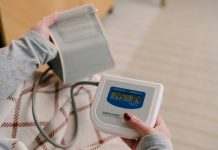
Exercise is an important component of a healthy lifestyle and has been shown to have numerous benefits for cardiovascular health, including helping to lower blood pressure.
However, some individuals may wonder if physical activity can cause high blood pressure or if there are certain exercises that should be avoided if one has hypertension.
In this article, we will explore these questions and provide recommendations for physical activity for individuals with high blood pressure.
Can physical activity cause high blood pressure?
In general, physical activity is not a cause of high blood pressure. In fact, regular physical activity can help to lower blood pressure and reduce the risk of developing hypertension.
However, it is possible for blood pressure to increase temporarily during and immediately after exercise, especially if the exercise is intense. This is known as exercise-induced hypertension.
Should I do physical activity with high blood pressure?
Yes, individuals with high blood pressure are encouraged to engage in regular physical activity.
Exercise can help to lower blood pressure, improve cardiovascular health, and reduce the risk of developing complications associated with hypertension.
However, it is important to talk to a healthcare provider before starting an exercise program, especially if one has uncontrolled high blood pressure or other medical conditions.
What exercises should be avoided with high blood pressure?
In general, individuals with high blood pressure should avoid exercises that involve intense or prolonged periods of exertion, as these can increase blood pressure.
Examples of exercises to avoid include heavy weightlifting, sprinting, and long-distance running.
Activities that involve sudden changes in position, such as jumping or quick movements, should also be avoided.
It is important to consult with a healthcare provider to determine which exercises are safe and appropriate for individual needs and fitness levels.
What is the recommended physical activity for hypertension?
The American Heart Association recommends that adults engage in at least 150 minutes of moderate-intensity aerobic exercise or 75 minutes of vigorous-intensity aerobic exercise per week, spread out over at least three days per week.
Examples of moderate-intensity aerobic exercise include brisk walking, cycling, and swimming, while examples of vigorous-intensity aerobic exercise include running, hiking, and high-intensity interval training (HIIT).
In addition to aerobic exercise, it is also recommended to engage in muscle-strengthening activities at least two days per week.
Does exercise make high blood pressure worse? In general, exercise does not make high blood pressure worse.
However, as mentioned earlier, blood pressure may increase temporarily during and immediately after exercise, especially if the exercise is intense.
This is normal and typically resolves quickly.
However, if blood pressure remains elevated after exercise or if one experiences symptoms such as chest pain or shortness of breath during exercise, it is important to stop and seek medical attention.
Does blood pressure increase after walking?
In some cases, blood pressure may increase after walking, especially if the walk is intense or uphill.
However, this increase is typically temporary and should return to baseline levels soon after the activity is completed.
In general, moderate-intensity walking is a safe and effective form of exercise for individuals with high blood pressure.
What time of the day is blood pressure highest? Blood pressure typically follows a circadian rhythm, with levels being highest in the morning and lowest at night.
However, blood pressure can vary widely throughout the day and can be influenced by a variety of factors, including physical activity, stress, and medication use.
It is important to monitor blood pressure regularly and at different times of the day to get an accurate picture of one’s blood pressure patterns.
Physical activity is an important component of a healthy lifestyle and can help to lower blood pressure, improve cardiovascular health, and reduce the risk of developing complications associated with hypertension.
While exercise-induced hypertension may occur during and immediately after exercise, regular physical activity is generally safe and beneficial for individuals with high blood pressure.
If you care about blood pressure, please read studies about unhealthy habits that could increase high blood pressure risk, and people with severe high blood pressure should reduce coffee intake.
If you care about health, please read studies about how the Mediterranean diet could protect your brain health, and blueberry supplements may prevent cognitive decline.
Copyright © 2023 Knowridge Science Report. All rights reserved.



